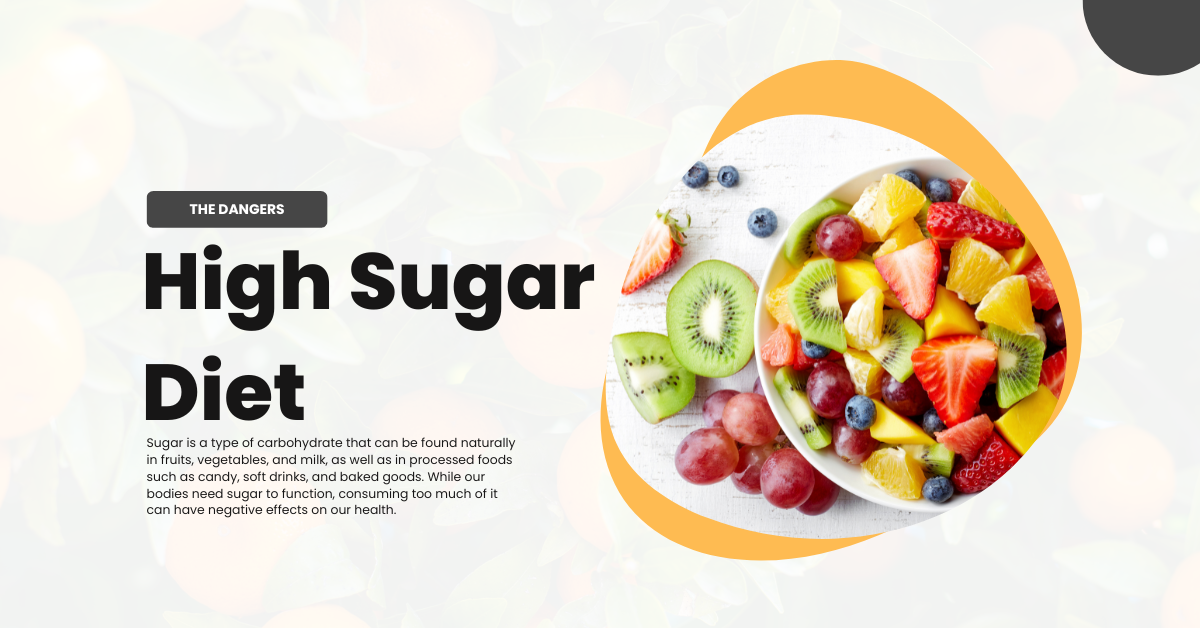Sugar is a type of carbohydrate that can be found naturally in fruits, vegetables, and milk, as well as in processed foods such as candy, soft drinks, and baked goods. While our bodies need sugar to function, consuming too much of it can have negative effects on our health.
Key Highlights
Weight Gain: Consuming too much sugar can lead to weight gain over time, as excess sugar is converted into fat and accumulates in the body.
Health Risks: A high sugar diet can lead to numerous different health issues.
Insulin Resistance and Mental Health: Consuming too much sugar can also lead to insulin resistance, which can cause our bodies to store more fat and further contribute to weight gain. Additionally, studies have shown that consuming too much sugar can have negative effects on our mental well-being.
The Link Between High Sugar Diet and Weight Gain
One of the main concerns with a high sugar diet is weight gain. When we consume sugar, it quickly broken down into glucose and fructose in our bodies. While glucose can be metabolized by most tissues, fructose can only be metabolized by the liver. When the liver is overloaded with fructose, it converts it into fat in a process called de novo lipogenesis. This excess fat can accumulate in our bodies, leading to weight gain over time.
The Health Risks of High Sugar Diets
In addition to contributing to weight gain, a high sugar diet can also lead to insulin resistance. Insulin is a hormone that regulates blood sugar levels in our bodies. When we consume too much sugar, our bodies release more insulin to compensate. Over time, this can lead to insulin resistance, a condition where our bodies are no longer able to respond properly to insulin. Insulin resistance can cause our bodies to store more fat, which can further contribute to weight gain.
While sugar is a necessary part of our diets, consuming too much of it can lead to weight gain, the development of visceral fat, insulin resistance, and negative effects on our mental health. It is important to be mindful of our sugar intake and to consume it in moderation.
References:
Stanhope, K. L. (2016). Sugar consumption, metabolic disease, and obesity: The state of the controversy. Critical reviews in clinical laboratory sciences, 53(1), 52-67.
Neeland, I. J., Poirier, P., & Després, J. P. (2018). Cardiovascular and metabolic heterogeneity of obesity: Clinical challenges and implications for management. Circulation, 137(13), 1391-1406.
Stanhope, K. L. (2012). Role of fructose-containing sugars in the epidemics of obesity and metabolic syndrome. Annual review of medicine, 63, 329-343.
Westover, A. N., Marangell, L. B. (2002). A cross-national relationship between sugar consumption and major depression? Depression and Anxiety, 16(3), 118–120.







